Beef is More than Business for NCBA President-Elect
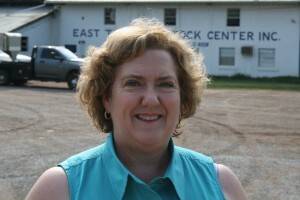 Livestock isn’t just her business. It’s her calling and her passion. Raising livestock is a way of life for Jennifer Houston of Sweetwater, Tennessee, who is the 2018 National Cattlemen’s Beef Association (NCBA) President-Elect.
Livestock isn’t just her business. It’s her calling and her passion. Raising livestock is a way of life for Jennifer Houston of Sweetwater, Tennessee, who is the 2018 National Cattlemen’s Beef Association (NCBA) President-Elect.
“I would like consumers to understand that producers care deeply about the animals we raise. We care about each animal’s welfare,” says Jennifer. “Producing a safe, wholesome product is top of mind. We feed what we raise to our own families, so I want consumers to feel good about feeding safe and wholesome beef to their children. Once consumers understand how hard we work to care for our livestock, it helps deepen their trust.”
As in any relationship, it takes time to earn trust. Jennifer has spent a lifetime earning the trust of fellow producers and consumers alike. She says she was raised to advocate as her father was Director of Intergovernmental Affairs for the U.S. Department of Agriculture. Her father-in-law served as executive director of the Tennessee Livestock Association.
Jennifer credits her involvement in 4-H livestock judging and as a member of the University of Tennessee livestock judging team for helping her develop the confidence needed to defend her beliefs and to state the reasons why she made her decisions. These experiences undoubtedly helped her develop strong public speaking skills.
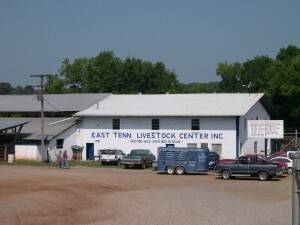 Those speaking skills have been used to represent the beef industry since Jennifer graduated from college and married Mark Houston, whom she met while they were both majoring in Animal Science at the University of Tennessee. After graduating from college, Mark returned home to help with the family’s livestock auction business that his father had formed in 1962. A few years into their marriage, Jennifer left her job with the USDA and joined Mark in the East Tennessee Livestock Center where a regular sale is still held every Wednesday. Graded feeder calf and Holstein steers sell on Fridays. They also have about 27 special Friday sales each year and offer video sales for producers, who can sell in tractor-trailer load lots.
Those speaking skills have been used to represent the beef industry since Jennifer graduated from college and married Mark Houston, whom she met while they were both majoring in Animal Science at the University of Tennessee. After graduating from college, Mark returned home to help with the family’s livestock auction business that his father had formed in 1962. A few years into their marriage, Jennifer left her job with the USDA and joined Mark in the East Tennessee Livestock Center where a regular sale is still held every Wednesday. Graded feeder calf and Holstein steers sell on Fridays. They also have about 27 special Friday sales each year and offer video sales for producers, who can sell in tractor-trailer load lots.
In addition to the auction business, Jennifer and Mark also run stocker cattle and develop beef heifers.
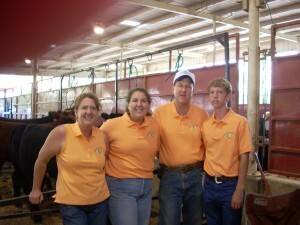 “I enjoyed showing cattle when I was growing up, and we really had a lot of fun attending shows as a family. My husband didn’t grow up showing, but he really embraced it with our children. Our son and daughter both showed commercial heifers, and it was fun to watch them build a herd,” recalls Jennifer. “There were days when it was 100 degrees in the shade with 90 percent humidity, but our kids had to go out and work with their heifers and steers. They had to find time to get their chores done, even when they had ball practice or games. They learned the importance of keeping their animals properly fed and watered. I believe working together really builds close families.”
“I enjoyed showing cattle when I was growing up, and we really had a lot of fun attending shows as a family. My husband didn’t grow up showing, but he really embraced it with our children. Our son and daughter both showed commercial heifers, and it was fun to watch them build a herd,” recalls Jennifer. “There were days when it was 100 degrees in the shade with 90 percent humidity, but our kids had to go out and work with their heifers and steers. They had to find time to get their chores done, even when they had ball practice or games. They learned the importance of keeping their animals properly fed and watered. I believe working together really builds close families.”
Jennifer has served as a tireless advocate for the beef industry while working in the family business, producing beef and raising a family. Jennifer credits her time management skills and work ethic to growing up on a cattle and hog farm. She feels called to serve agriculture and the beef industry that means so much to her.
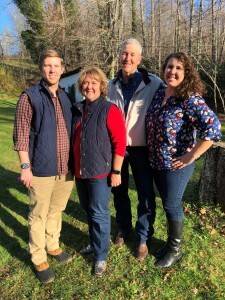 “Not everyone has the opportunity to be involved in industry organizations because of their situation or their inclination. That’s why it’s so important for those of us who are willing and able to get out and represent our farmer-rancher friends,” explains Jennifer. “I’m involved because I hope to make a difference for the better.”
“Not everyone has the opportunity to be involved in industry organizations because of their situation or their inclination. That’s why it’s so important for those of us who are willing and able to get out and represent our farmer-rancher friends,” explains Jennifer. “I’m involved because I hope to make a difference for the better.”
Jennifer has certainly made her mark throughout the years. In 1986, she became a member of the first Tennessee Beef Industry Council and has served twice as its chairman. Her national involvement began as she represented Tennessee on the Beef Industry Council of the National Livestock and Meat Board. She has been an NCBA board member since 1996, chairing the Foodservice, Advertising and New Product and Culinary Initiative committees. Jennifer has chaired the NCBA Policy Division. She also has served as chair of the Federation of State Beef Councils where she also served on the Beef Promotion Operating Committee and the Meat Export Federation executive committee. She served as Region II Vice-President and was a member of the NCBA executive committee from 1997 to 1999.
At the state level, Jennifer has chaired the Tennessee Livestock Network. She served as president of the Tennessee Cattlewomen’s Association and served on the Tennessee Cattlemen’s Association executive committee. She also active in the Tennessee Livestock Marketing Association and serves on the University of Tennessee Regional Advisory Board.
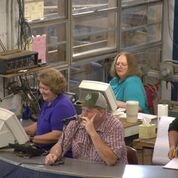 “I’ve been involved with cattle my whole life, so it’s the only way of life I know,” says Jennifer. “Whether you raise crops or livestock, there’s a way to get involved at some level: locally, regionally, state, national. Agriculture needs you! And you get back so much more than you give.”
“I’ve been involved with cattle my whole life, so it’s the only way of life I know,” says Jennifer. “Whether you raise crops or livestock, there’s a way to get involved at some level: locally, regionally, state, national. Agriculture needs you! And you get back so much more than you give.”
Even if you don’t have time to get involved on an association board, Jennifer says you can advocate in so many ways: be active on social media, do interviews on radio and/or television, write articles, speak to Rotary or Kiwanis clubs or volunteer to speak in classrooms. Stories that resonate best with consumers are real-life examples of what happens on your farm or ranch.
Consumer also connect with producers through food. Today Jennifer is sharing with us one of her family’s favorite recipes for pan-seared steak in honor of June Steak Month.
Pan Seared Steaks with Savory Butter
Ingredients
Ingredients:
- 2 USDA Choice beef steaks (filet, ribeye or strip cut 1 to1 1/2 inch thick)
- 1 Tablespoon vegetable oil
- 1 tablespoon butter or margarine
- Cracked pepper
Savory Butter
- 4 tablespoons butter, softened
- 2 tablespoons crumbled blue cheese
- 1 tablespoon minced sweet onion or shallots
- ½ teaspoon Worcestershire sauce
- ¼ teaspoon pepper
- ¼ teaspoon salt
Instructions
Directions:
To make savory butter: At least two hours ahead of cooking, mix butter, blue cheese, onions, Worcestershire, salt and pepper. Small food processor works well. Turn out on a piece of plastic wrap and form into a 1 inch log. Wrap in plastic and place in refrigerator until needed. (The butter may also be frozen)
Before beginning to cook steaks, preheat oven to 400 degrees.
Remove steaks from refrigerator 30 minutes prior to cooking. Press approximately ½ teaspoon of cracked pepper on each side of steaks. Press into steaks.
Put butter and olive oil in cast iron skillet on high heat. After butter/oil is melted and coating the skillet bottom, place steaks in skillet. Sear steaks 2 minutes on each side (a nice brown crust should form).
Place steaks on baking sheet into oven. Cook 5-7 minutes for medium doneness.